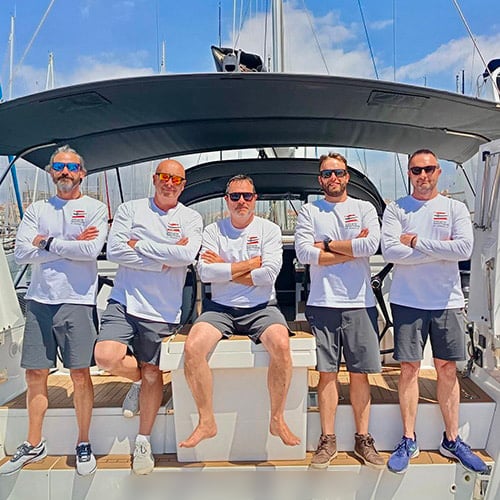
The difference between GT and UMS in professional yachting
9 May 2025
What training do you need to skipper your own boat?
9 May 2025Offering your boat for skippered charter can be an excellent way to make the most of your vessel while sharing your passion for the sea. However, poor preparation can turn this adventure into a source of administrative and financial complications. Here are the 7 mistakes to avoid before embarking on your skippered yacht charter with complete peace of mind.
1. Do not hold the required professional certificate
Sailing as a professional skipper cannot be improvised. Many people think that a sea-going license is enough, but to offer skippered charters, a state-approved professional certificate is required, such as the Captain Master 200 GT or higher, depending on boat size and intended sailing area.
The Yachter offers e-learning courses, enabling you to obtain these certificates in 3 to 6 months, at your own pace. These e-learning courses comply with the STCW convention and are recognized in France, Europe, the Caribbean, the French overseas departments and territories and more than 168 countries worldwide.
2. Anticipate tax and administrative obligations
Offering your boat for charter with skipper is considered a commercial activity. This requires :
- Creating a legal status (auto-entrepreneur, company, etc.)
- Company registration
- Declaring rental income
- Accounting management, especially if you exceed certain sales thresholds
Tax advice and support are highly recommended to avoid any errors or adjustments.
3. Thinking that yacht insurance is enough
Standard leisure insurance does not cover a commercial activity with passengers. You must take out appropriate professional insurance, including :
- Skipper’s professional liability
- Passenger coverage
- Business-related risks (claims, cancellations, property damage, etc.)
Some companies specialize in professional boating and offer tailor-made contracts.
4. Neglecting the condition and conformity of the boat
Before proposing sea outings, it is essential to ensure that the boat complies with technical requirements:
- Up-to-date safety equipment
- Fire extinguishers checked
- Floatation devices and radio in good condition
- Regular engine and hull maintenance
Failure to do so could endanger your passengers… and expose you to penalties.
5. Underestimating customer experience and communication
Being a good skipper isn’t just about knowing how to sail. It also means knowing how to welcome, reassure, explain and create a friendly, professional experience. From pre-rental communication (photos, descriptions, quotes) to the outing at sea, every detail counts to satisfy the customer and win recommendations.
6. Thinking you can improvise anything
Being a professional skipper involves :
- Perfect navigation skills
- Excellent regulatory knowledge
- On-board safety management
- Supervision of often inexperiencedpassengers
Training with a specialized organization like The Yachter guarantees a solid foundation of technical, regulatory and human skills.
In a nutshell
Renting out your own boat with a skipper is an exciting project, but it needs to be carefully prepared. Good training, regulatory compliance, appropriate insurance and a clear tax framework are the cornerstones of a sustainable professional activity.
Would you like to offer your boat for skippered charter without making these mistakes?
Join The Yachtsman and train to become a Master 200 GT, 500 GT and 500 GT Unlimited Captain:
- 100% online distance learning
- State-approved certification
- STCW-compliant
- Access to careers in yachting, maritime transport and nautical leisure activities



